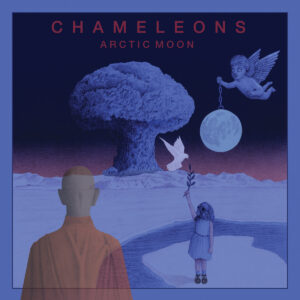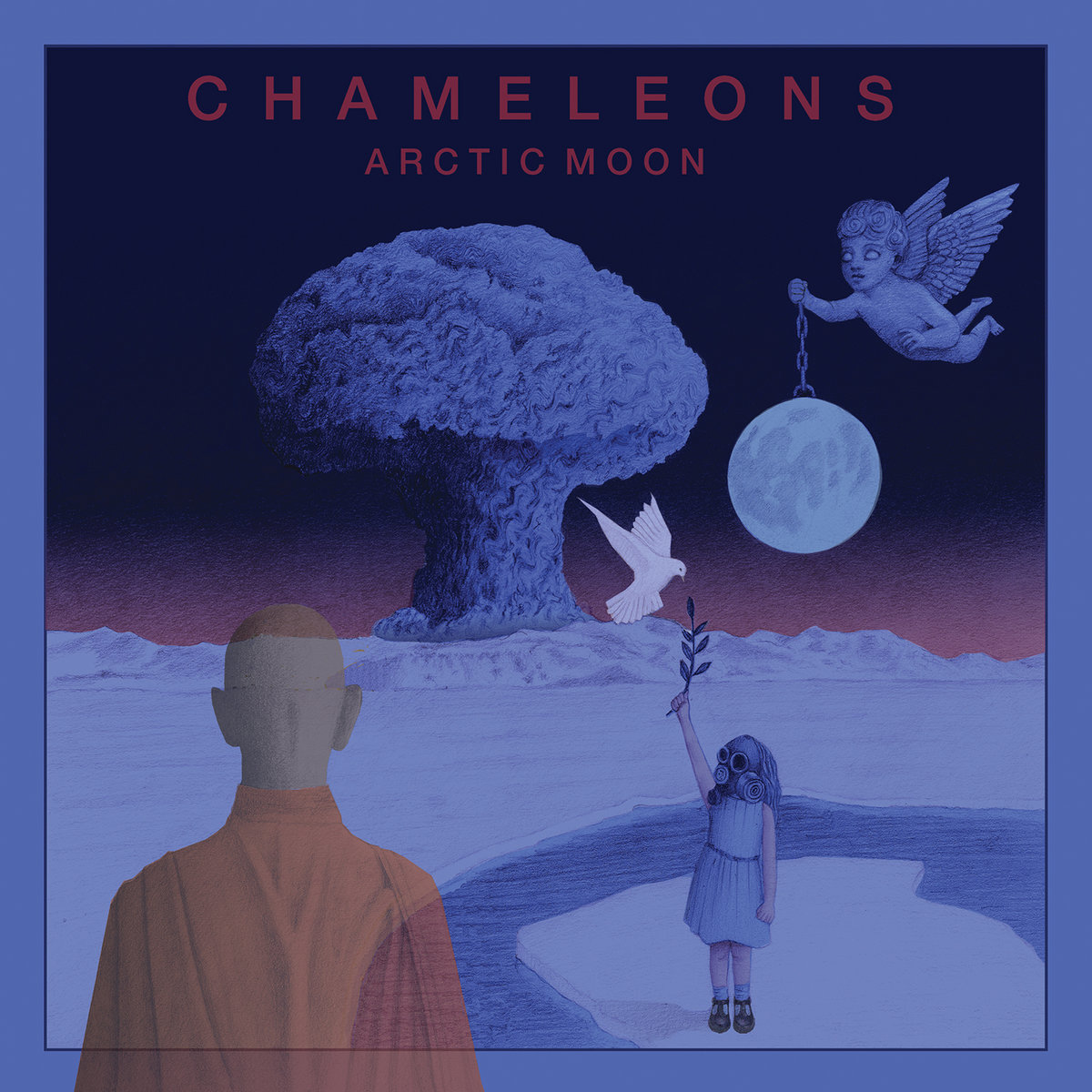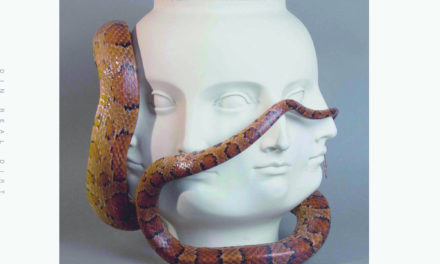
Chameleons
Arctic Moon
Metropolis Records
Earlier this year Chameleons frontman and bassist Mark Burgess formally rechristened himself Vox. From an outsider’s perspective, that change of name feels like a symbolic inauguration of the new incarnation of the band and Arctic Moon, its first LP in twenty-four years. In several interviews Vox has stressed his desire to not imitate the band’s previous work simply for nostalgia’s sake, specifically citing the distinct guitar echo of former guitarist Dave Fielding as something belonging to an earlier era and to Fielding himself. While the band that’s brought Arctic Moon to bear after a lengthy warm-up period of well received live gigging is definitely not the same band that released Why Call It Anything in 2001, let alone the same band who released the instant classic Script Of The Bridge in 1983, longtime listeners will be drawn in by both the continuities and discontinuities Arctic Moon holds with its predecessors.
From the crisp and clarion chords of “Where Are You?” (now re-recorded and with lyrical changes since last year’s single version), Arctic Moon feels as direct and uncouched as anything the band’s ever released. It’s a reminder of just how out of step the band always were with the larger post-punk milieu; its garage rock lead and almost doo-wop inspired harmonies draw upon sources which would surely feel like ancient history to young listeners drawn in after discovering “Second Skin” on TikTok, but its warmth is immediate and pre-cognitive, swaddling you like a perfectly worn-in sweater.
That directness doesn’t come at the cost of subtlety, or the smeared, dreamy psychedelia the band’s always held to. Something of classic deep cut “Tears” can be heard in the elegant plucking which opens “Lady Strange” and returns throughout as the song shifts down from its affable, almost Merseybeat nod and into darkly drifting halftime. The wary, terse pulse of closer “Saviours Are A Dangerous Thing” manages to invoke the fear that any of today’s fascist stormtroopers might be a foot outside the door while diving deep into the sort of coded political satire which gave us The Inferno, The Book Of Revelation, and “American Pie”.
To that end, the eye Vox casts on our present predicament is perhaps where the difference a few decades’ experience makes is most palpable. On both “Saviours” and the deceptively sing-song “Feels Like The End Of The World”, one can hear Vox retooling his longstanding knack for blending classic English romanticism into the present (again, a poetic tack which distinguished The Chameleons’ response to Thatcherism from, say, the inverted sloganeering of Gang Of Four). “End Of The World” points out how willfully naive utopian and millenarianist rhetoric has been used to lead populaces down the garden path to war and genocide. It’s the sort of perspective Vox would have been more than capable of taking in The Chameleons’ early days, but certainly feels more earned now. “What kind of times are these?”, he once rhetorically asked. Well, he’s had plenty of opportunities to learn since, as he notes here: “I’ve seen it before, empathy wither and die”.
The band’s desire to demarcate Arctic Moon from its preceding catalog is an understandable one, and the record’s roots approach to rock songwriting helps them achieve it for the most part. But the themes and worlds they’re drawn to are in some ways an inescapable function of the band’s nature: old before their time yet in love with childhood, their romanticism remains untarnished by age or the ages they’ve documented.





